Eggs are a kitchen staple for most households. However, it is crucial to know how to tell if eggs are bad. Keep reading to learn the signs that you’re dealing with a rotten egg.
View in gallery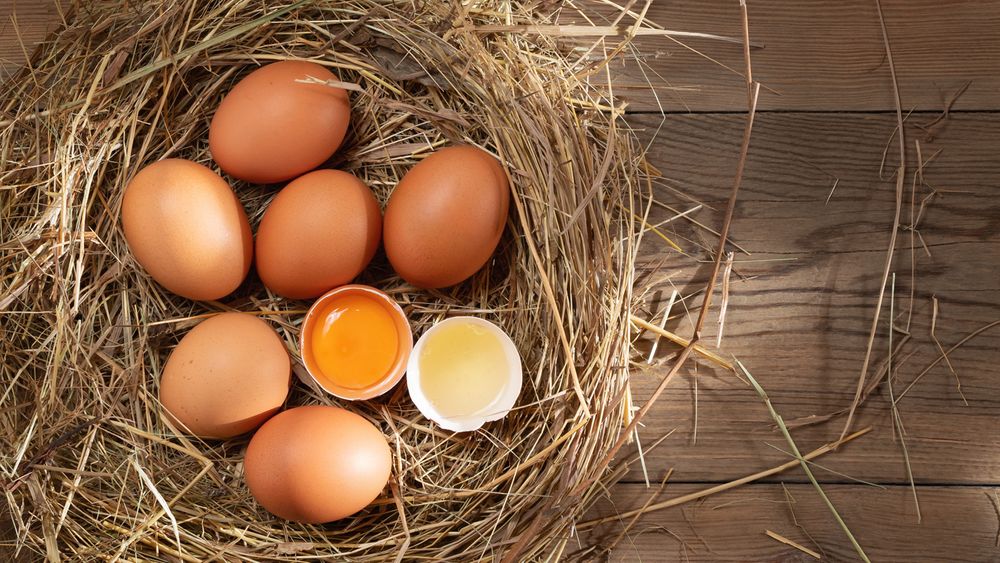
If your eggs have been sitting in the fridge a little too long, you’re probably wondering how to tell if they have gone bad. After all, eggs can be contaminated with salmonella, and no one wants to be struck down with food poisoning.
Fresh Eggs Need Not Be Hard to Find
In this article today, we will cover a few different ways to tell if your eggs have gone bad. The sell-by date may seem like the best indicator, but it isn’t always the best indicator of how fresh your eggs really are. But we’ll get more into that later.
6 Ways to Tell If You’re Dealing With a Bad Egg
Badly spoiled eggs are easy to detect, especially once you’ve cracked them open. But, if you don’t want the lasting memory of that disgusting rotten egg smell, then there are a few ways to tell if eggs are bad without cracking them open.
1. Do the Float Test
One of the easiest and sure tell ways to check if you have fresh eggs or bad eggs is by doing the float test.
View in gallery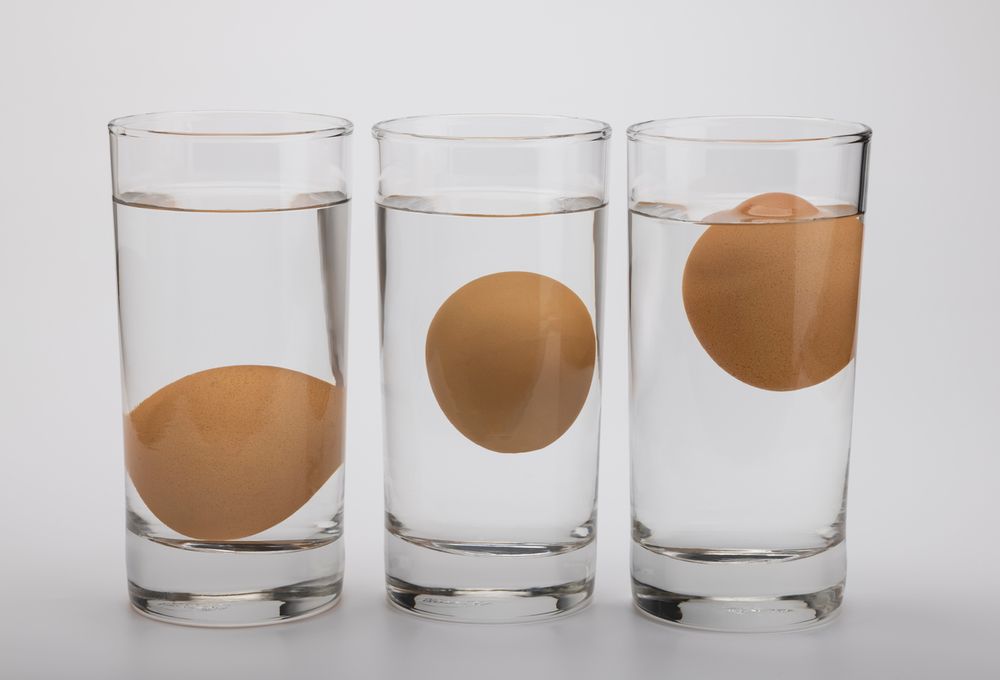
All you need is a glass or bowl of cold water and your egg in question. You see, fresh eggs sink, and rotten eggs float. So, what you’re looking out for, is whether your egg is a sinker or a floater.
Bad eggs float because of a small air pocket inside the shell. As an egg gets older, the air bubble inside grows larger. This air pocket grows because moisture evaporates through the eggshell and gets replaced by air. As the moisture decreases, the egg starts to float.
Ideally, you want an egg to lay flat in the water.
If an egg lies horizontally at the bottom of the water, it will be at its freshest. If it still remains at the bottom, but the narrow end of the egg tilts upward, it is usable but not quite as fresh.
However, if the egg stands upright at the bottom of the water, it is still safe to use, but it would be better for baking or when making hard-boiled eggs. And of course, you know, if the egg floats, it’s time to chuck it out.
2. Use a Flashlight
View in gallery
You’ll need to switch off the lights and grab a flashlight for this one.
Take your egg and shine the light directly onto the shell. If cracks are visible in the shell, this is an opportunity for bacteria to access and spread throughout the egg. If there are no cracks, the egg should be good to go!
3. Do the Shake Test
View in gallery
This one isn’t the most reliable, but it’s worth a shot if you have no water to hand. Hold your egg up to your ear and shake. If you can hear a sloshing sound, it’s gone bad and needs to be thrown out. If you can’t hear anything, your eggs are fresh and more than likely safe to eat.
How to Tell if Eggs Are Still Good After Cracking
If you’re brave enough to risk the rotten egg smell, then cracking the egg open is the best way to tell if you have a bad egg or a good egg.
4. Do the Sniff Test
View in gallery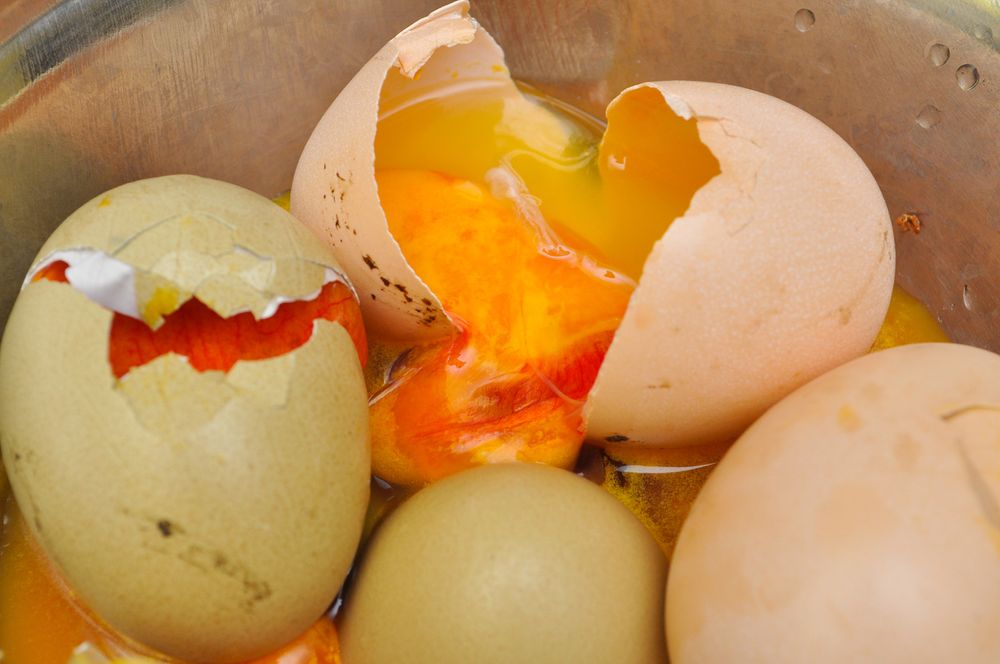
The sniff test is quite possibly the most obvious way to tell an egg’s freshness. If your egg has passed the other tests on the list, cracking it open and giving it a sniff will tell you if you should toss it or continue using it.
If your egg has that disgusting sulfur smell, then you know it isn’t safe to use, and it belongs in the bin. To avoid ruining your other ingredients, crack your eggs into a separate bowl before adding them to everything else.
5. Check for Discoloration
View in gallery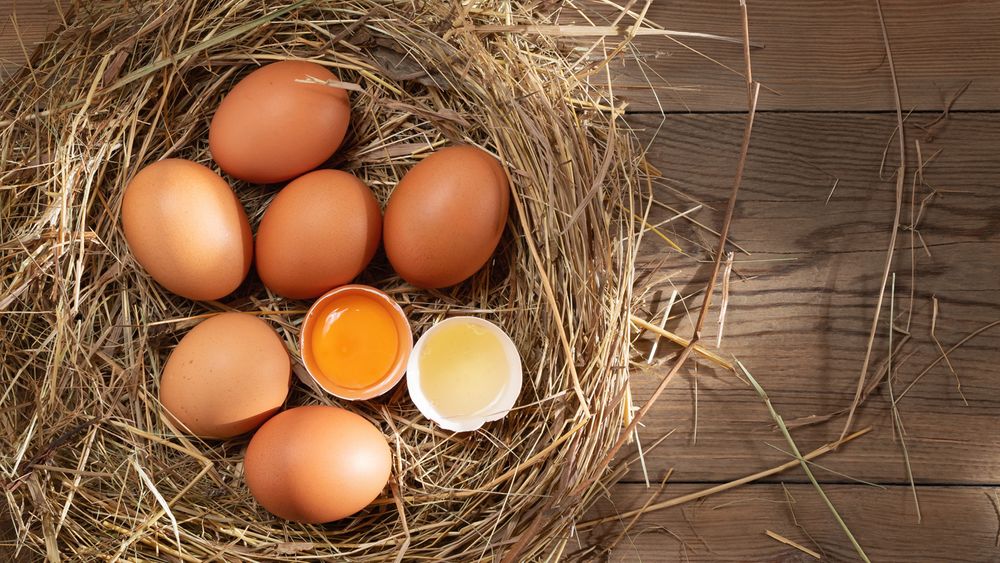
The next thing you can do to see whether you have a rotten or fresh egg is to check for any discoloration.
Although you can inspect your egg while still in its shell, it’s best to crack it open and inspect the insides. If the shell has any cracks or showcases a slimy bacteria, it isn’t safe to use, and you’re better safe than sorry.
If the exterior of the egg looks normal, then it’s time to crack it open. Once you’ve cracked the egg into a bowl, check if there is any discoloration of the yolk or egg white. Remember, the egg should only have a bright yellow or orange yolk, and the white should be clear or slightly cloudy. If you happen to see any other colors, toss the egg out.
Consistency can also be an indicator of egg freshness. The white of an egg should be runnier than the yolk, but if the white is too runny, then it may be past its prime.
6. If in Doubt, Toss it Out
View in gallery
We mentioned before that raw eggs can contain salmonella. If you’ve never been struck down with salmonella, then lucky you, but if you have, then you know full well it’s better to be safe than sorry.
If you have any doubt when it comes to egg freshness, then toss it out. Sure, you may have the slight inconvenience of running down to the grocery store, but getting salmonella is far worse.
How to Prevent Eggs from Going Bad
Now that we’ve covered how to tell if an egg is bad, let’s discuss some ways to keep your eggs fresh for longer.
Store Eggs at the Bottom of the Fridge
View in gallery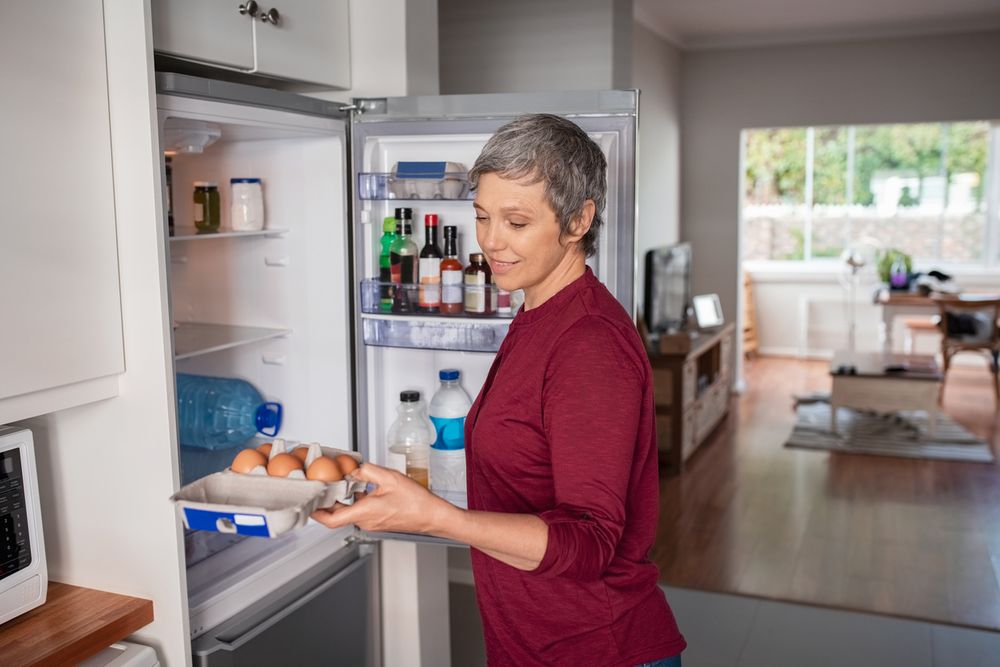
We know that most fridges come with a separate egg container compartment on the top side of the door. Although these individual egg holders are handy, they’re one of the worst places to store your eggs.
If you store your eggs in the door, they will experience more significant temperature fluctuations than if you store them in the bottom or coldest part of the refrigerator. The middle or lower shelves are your safest bet.
You should also never remove eggs from the fridge and leave them out on the counter for longer than two hours. This temperature change will cause the eggs to sweat and invite bacterial growth.
Consume Eggs within 3 – 5 weeks
As a general rule, you should try and eat eggs within three to five weeks of purchasing them. It goes without saying that older eggs will be less fresh, so consuming them as quickly as possible will prevent them from ever going bad.
Always remember to check the expiration date to check if your eggs are still good.
How to Tell If an Egg Is Bad: Our Final Thoughts
So, there you have it, six ways to tell if eggs are bad. If, even after these ways, you’re struggling to come to a conclusion on whether your eggs are still good, then that’s probably a sign that they need to be thrown out.
Save yourself potential food poisoning and take a trip to the local farmer or grocery store to pick up some fresh and safe eggs.
As we finish this article, we’re intrigued to know your favorite way of telling if eggs are bad. Have we left any telltale ways off the list? Let us know in the comment section down below!





